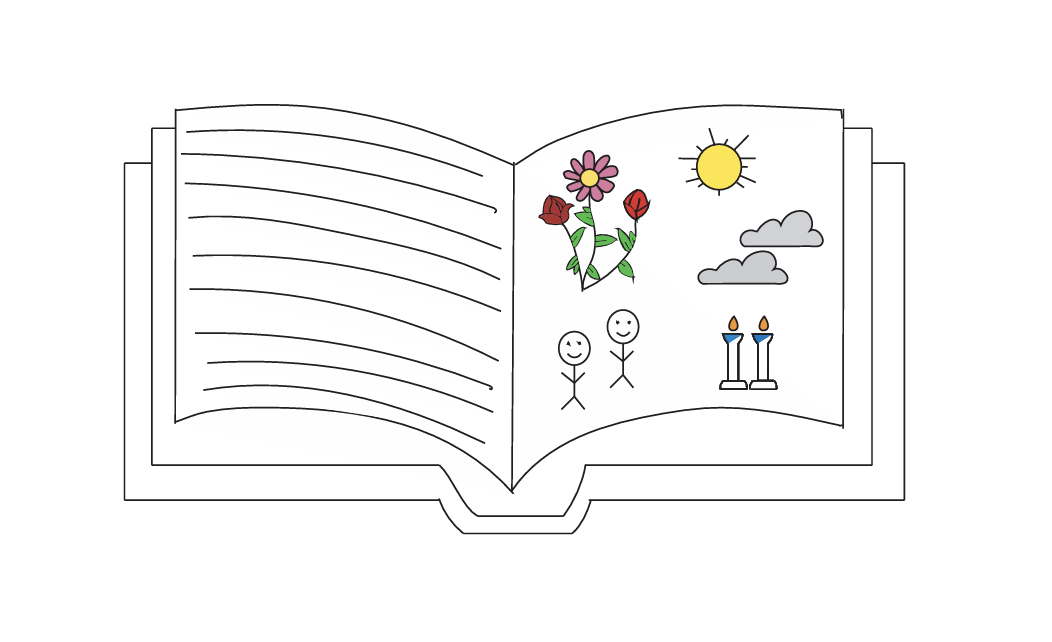By Mati Hurwitz, Torah Editor
Parshas Re’eh opens up with Hashem giving the Jewish people a blessing and a curse. This blessing is to listen and observe Hashem’s commandments while the curse is punishment the Jews will receive for straying from His path and serving other gods.
The opening verses (Deut. 11:26-28) really set the tone for the parsha, which goes on to be full of both positives and negatives. For example, the fourth aliya (14:1-21) talks about how we are Hashem’s chosen nation and we are restricted as to which animals we can eat. The Torah positively states which animals, birds and fish are kosher to eat and which animals are prohibited.
Overall, the theme is about the importance of good judgment and decision-making; if you observe God’s laws, you will be rewarded (the blessing), and if you transgress, you will be punished (curse). Good judgment is also a nice complement to self-control, which can together be learned from Rashi’s interpretation of this passuk (verse): “Only be strong not to eat the blood.” (12:23)
It speaks about the self-control required to resist eating blood, but really to hold back one’s desires and temptations in general. Because why would anyone, strong or weak, have the desire to eat blood, such that they would need strength to prevent themselves from eating it? Obviously there are people who are tempted to break rules just because there are rules, but why would anyone ever want to eat blood? Not to touch or look at it, but to eat it. This is absurd!
Rashi clarifies that we are commanded not to eat blood in order to strengthen ourselves to do more mitzvos. Rashi also explains that Moshe told the Jewish people that they needed to be strong enough to resist something as repulsive as blood is to eat.
Rashi continues and uses a kal vachomer – that is, a hermeneutic principle drawing conclusions from a lighter idea compared to a heavier idea. In this case, it works this way: if one needs self-control to resist eating something as repulsive as blood, surely one will need even more control to resist not falling for more enticing temptations, such as non-kosher food or sexual pleasures).
Thus we can learn from Rashi on this passuk that we need to have self-control for even the smallest things, even the things we would never think to do! We always must start with the little steps, which in this case means controlling temptation relating to eating blood. If we can have that resistance, we can grow that strength into controlling our larger desires.
As we approach this Shabbos Re’eh, we exit the month of Menachem Av and enter Elul. Sephardim will start saying slichot (penitential prayers) in a matter of days, and Ashkenazim in a few weeks. Now is a crucial time for doing true teshuva — returning to Hashem and repenting for our misdeeds. Although we can still be forgiven for what we have done, if we strengthen ourselves to resist temptation and have enough self-control, we won’t have anything to ask forgiveness for come next year!
Now that we are in Elul we should be looking to the future already. We can see how we can make the smallest adjustments in life with a little resistance. For example, if you are asked gossip about another Jew, control yourself, just say no; step away from that topic. If you desperately want a nice gold watch and it is out in the on display in the store, don’t come close to stealing the watch, stop and think what the right thing to do is. Control your yetzer hara (bad conscience) and step away from the watch.
We all can learn from this passuk stating not to eat blood that overall we should strengthen our own personal self-controls as best as we can in order to make for a brighter future. We can better ourselves and not negatively affect other people. In the spirit of Elul let’s all work on our individual desires and temptations.








Travis Katz • Aug 15, 2015 at 9:48 pm
Mati, this post took three years to reach me! The timing couldn’t be better, as we just finished Shabbat Re’eh.
Are you related to R’Yitzi Hurwitz, Mati? Shavuah Tov and Chodesh Tov, from Dallas, TX.